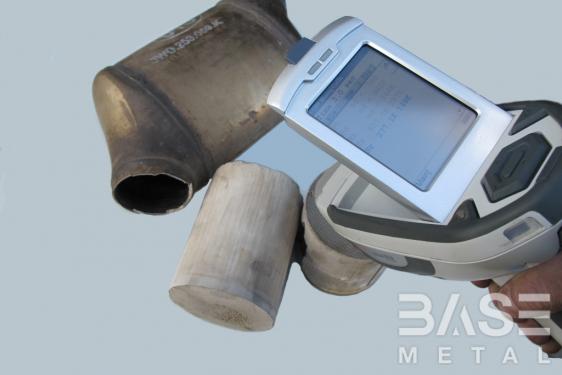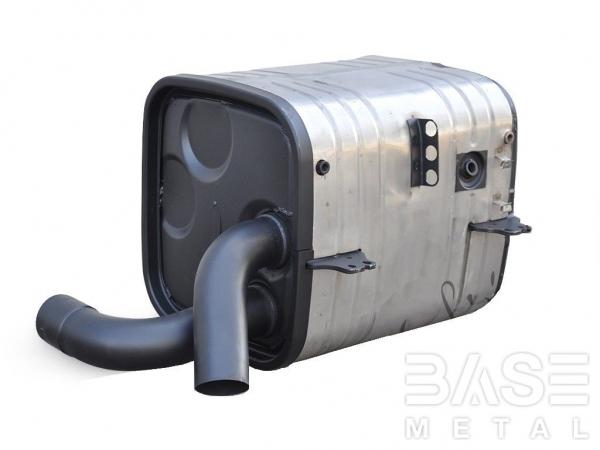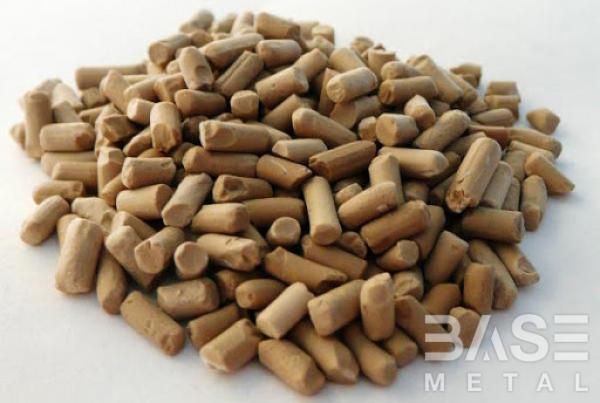Catalytic converter and industrial catalysis recycling
CATALYST RECYCLING
Catalytic converter recycling is one of the main lines of our business.
In one calendar year, we process up to two hundred tons of various types of catalysts.
BASE Metal recycles ceramic and metal based automotive catalysts as well as lambda probes (oxygen sensors).
We have a complete range of equipment for cutting, grinding and analyzing raw materials.
Cooperation with leading catalyst converters all over the world allows us to have a flexible pricing policy.
The geography of our client and partner contacts includes more than 30 countries around the world.
Cooperation with legal entities is carried out on the basis of disposal contracts.
 CATALYTIC CONVERTER AND PARTICULATE FILTERS RECYCLING
CATALYTIC CONVERTER AND PARTICULATE FILTERS RECYCLING
Catalysts and particulate filters in metal housings
Accepted by catalog.
The catalog does not accept catalysts and filters with partially missing ceramic filling. These raw materials are sent for cutting, crushing and XRF analysis.
The catalyst connecting pipes must be cut so that the catalyst or filter filling can be seen.
If you are unable to cut the catalyst tubes yourself, you can use the on-site tube cutting service.
We advise you to submit batches of 20 catalysts or more based on XRF analysis only, since the data in various catalyst catalogs is averaged and has a large margin of error. More in the section «Should you trust catalyst catalogs?»
Our clients can send catalysts by courier. More in the section «Send by mail!».
Ceramic filling
Ceramic fillings are only accepted based on XRF analysis. 
The ceramic filling must be dry (natural moisture).
The weight of the ceramic filling takes into account the presence of asbestos, moisture and soot.
Ceramics, crushed to the state of a powder, is analyzed for the presence of foreign impurities (building mixtures, chamotte clay, etc.)
Batches of whole ceramic filling up to 10 briquettes can be analyzed individually instead of crushing. Time for analysis and calculation of the price of each briquette is 3-5 minutes.
Ceramic lots 5 - 25 kg are crushed in an express mixer. The time of grinding, sampling and analysis of such batches is 15-20 minutes.
Ceramic batches of 25 - 120 kg are crushed in a hammer or ball mill. The time of grinding, sampling and analysis of such batches is 60-120 minutes.
For batches of 300 kg and more - they are crushed by 90-100 kg in several crushers. It is possible to conduct a chemical analysis of the material in one of the selected laboratories. Chemical analysis time is up to 10 working days. More in the section «Spectral and chemical analysis service»
 FREIGHT TRANSPORT CATALYST RECYCLING
FREIGHT TRANSPORT CATALYST RECYCLING
In terms of content, catalysts from freight transport are divided into two main types:
- Containing platinum (Pt)
- Containing tungsten (W)
Only catalysts with platinum content are of value.
Catalysts from trucks are only accepted by analysis.
The analysis should be carried out on catalysts of a classic gray color (sometimes with a slight green tinge). Analysis time
and calculating the price of each briquette - 3-5 minutes.
Beige or cream colored catalysts contain tungsten. Such catalysts are not accepted.
Diesel particulate filters from trucks have no material value.
INDUSTRIAL CATALYSTS RECYCLING
BASE Metal recycles various industrial catalysts.
Catalysts come in a variety of sizes and shapes (beads, granules, rods, or rings).
Types of industrial catalysts:
- PTA catalysts, with palladium on granular activated carbon, used in the manufacture of chemical products.
- VAM catalysts, with palladium and gold on aluminosilicate, used in the manufacture of chemical products.
- Palladium and/or platinum activated carbon catalysts used in the manufacture of chemical products.
- Various precious metal catalysts on activated carbon used in the manufacture of pharmaceutical products.
- Reforming catalysts and other catalysts used in the petrochemical industry based on soluble and insoluble alumina, aluminosilicates, zeolites and activated carbon.
Industrial catalysts are used in the refining and petrochemical industries, as well as in the production of various basic, pure and intermediate chemicals.
Precious metals in mono- or bimetallic form are usually applied to the surface of carriers of various types, shapes and sizes, depending on their application.

